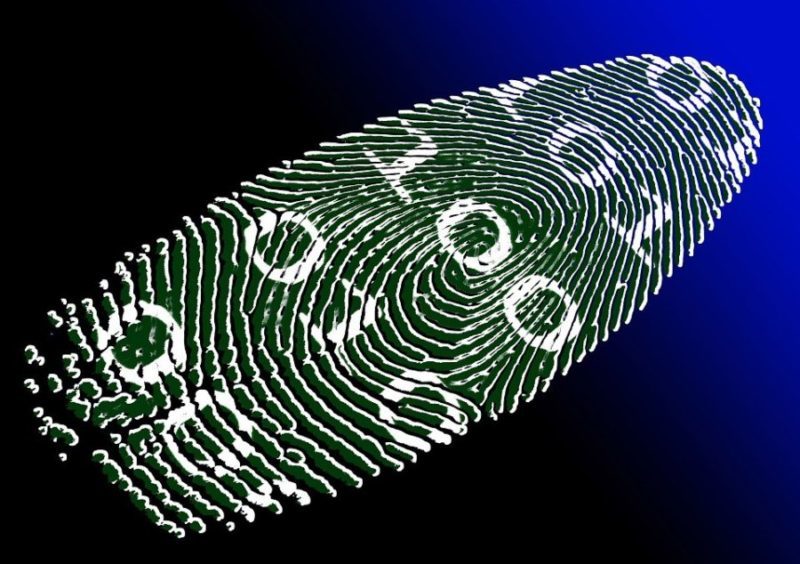Why Metaverse Can’t Exist Without Blockchain?
You might assume that the metaverse will be made up of an internet-like network of interconnected virtual places that can be accessed through virtual reality. The fundamental blockchain, which is a bit more opaque, will set the metaverse apart from the internet as we know it, even though most of this is accurate.
Blogging, social networking sites, and the central gatekeepers’ exploitation of user data for advertising “free” social media platforms like Facebook, Snapchat, and TikTok came to define Web 2.0 around the turn of the millennium. A network of connected computers and servers could be searched, explored, and used in Web 1.0. A single business, such as AOL, Yahoo, Microsoft, or Google, typically offers this platform.
The metaverse will be structured on top of Web 3.0. It will be decentralized applications with blockchain functionality that support an economy based on user-owned digital assets and data.
Owning Bits
Blockchain is a system that permanently logs transactions, often in a ledger, which is a decentralized and open database. The most popular blockchain-based cryptocurrency is Bitcoin. For instance, every time you purchase some bitcoin, the transaction is added to the blockchain, which distributes the record to thousands of different computers worldwide.
It is tough to trick or manipulate this decentralized recording system. In contrast to traditional banking records, public blockchains like Bitcoin and Ethereum are transparent in that all transactions are visible to anybody online.
Crypto assets are things that can be owned digitally, such as money, stocks, and art. Like Bitcoin, Ethereum uses a blockchain, but Ethereum can also be programmed using smart contracts, which are essentially blockchain-based software routines that execute when certain conditions are satisfied. For instance, you could use a modified agreement on the blockchain to prove that you are the rightful owner of a digital asset, like a work of art or piece of music, and prevent anybody else from claiming ownership of it on the blockchain — even if they save a copy to their computer.
Non Fungible tokens on a blockchain are things like music and art (NFTs). In contrast to fungible goods like money, which are interchangeable and each worth the same as the others, nonfungible goods are singular and cannot be replaced.
Most significantly, you may utilize a smart contract that specifies that you are prepared to sell your work of digital art for US$1 million in ether, the cryptocurrency used by the Ethereum network. On the blockchain, ownership of the work of art and the ether instantly transfers between us when I click “agree.” No bank or third-party escrow is required, and if either of us were to contest this transaction — say, if you insisted that I only paid $999,000 — the other might just as quickly point to the distributed ledger’s public record.
Why the metaverse can’t exist without a blockchain?
Found this brilliant read on Big Think.🔗 to the article 👇:https://t.co/0Nh2cT0gs1
— Apeksha Nayampally (@A_Nayampally) April 15, 2022
What is the connection between the metaverse and this blockchain crypto-asset stuff? Everything! Thanks to the blockchain, you can first possess digital commodities in a virtual environment. That NFT will be yours not only in the physical world but also in cyberspace.
A single organization or group isn’t creating the metaverse. Different organizations will create various virtual worlds, and in the future, these worlds will be able to communicate with one another, establishing the metaverse. People will want to take their belongings with them as they switch between virtual settings, such as from Decentraland’s to Microsoft’s. The blockchain will confirm ownership proof of your digital products in both virtual worlds if two of them are interoperable. In essence, you will be able to access your crypto assets as long as you can access your virtual world wallet.
Be sure to bring your wallet.
In the metaverse, you will undoubtedly want to carry cryptocurrency. Your digital items exclusive to the metaverse, such as your avatars, clothing, animations, virtual accents, and weaponry, will be stored in your cryptocurrency wallet. What then will you save in your cryptocurrency wallet?
What will individuals do with their crypto wallets? Among other things, shop. The ability to purchase standard digital goods like music, movies, games, and apps will be available precisely like you currently do online. Making more informed judgments will be possible if you have the chance to “hold” and inspect 3D models of the things you are considering purchasing. In the metaverse, you can also buy stuff from the real world.
Additionally, crypto wallets can link to real-world identities, which might assist expedite transactions that need legal proof, like buying a real-world vehicle or house. This is similar to how you can use your old leather wallet to carry your ID. You won’t need to remember login details for every website and the virtual world you visit because your ID will be linked to your wallet; all you need to do is connect your wallet with a click to log in. Access control to age-restricted sections of the metaverse will also be made possible through ID-associated wallets.
You might transfer your social network data from one virtual environment to another by connecting your cryptocurrency wallet to your contacts list. Join me in FILL IN THE BLANK-world for a pool party!
Future wallets might also be linked to reputation ratings that control your ability to communicate with people outside your social network and broadcast in public spaces. This might give users an incentive to act morally in the metaverse, but platform developers will need to provide these systems with top priority. If you behave like a destructive, disinformation-spreading troll, you risk harming your reputation and the possibility of the system reducing your area of influence.
Also, read – The Most Intriguing Metaverse Blockchain Projects
A large company
The metaverse is profitable. Therefore firms will surely want to join. Large platforms like Meta will be made available by businesses for people to work, play, and socialize. Blockchain’s decentralized nature may reduce the need for intermediaries in financial transactions. However, there will still be plenty of opportunities for firms to profit—possibly even more than in economies as they do now.
The NFT battle has attracted well-known corporations, including Dolce & Gabbana, Coca-Cola, Adidas, and Nike. In the future, purchasing a real-world item from a company could also result in you being the owner of a related NFT in the metaverse.
For instance, to attend the virtual Ariana Grande concert, your avatar can purchase the bitcoin equivalent when you buy the desired name-brand clothing. In addition, you could resell the physical outfit much like the NFT version for another avatar to wear.
These are only a few instances of how the natural world and metaverse business models could coexist. The complexity of these situations will increase as augmented reality technology spreads, further integrating the metaverse with the actual world. Perhaps the metaverse itself hasn’t arrived yet. Still, the foundation for a widespread virtual future that will soon appear in a “verse near you” is slowly laid by technologies like blockchain and crypto assets.
Stay informed with daily updates from Blockchain Magazine on Google News. Click here to follow us and mark as favorite: [Blockchain Magazine on Google News].
Get Blockchain Insights In Inbox
Stay ahead of the curve with expert analysis and market updates.
latest from tech
Disclaimer: Any post shared by a third-party agency are sponsored and Blockchain Magazine has no views on any such posts. The views and opinions expressed in this post are those of the clients and do not necessarily reflect the official policy or position of Blockchain Magazine. The information provided in this post is for informational purposes only and should not be considered as financial, investment, or professional advice. Blockchain Magazine does not endorse or promote any specific products, services, or companies mentioned in this posts. Readers are encouraged to conduct their own research and consult with a qualified professional before making any financial decisions. The featured image used is just a creative depiction of the title and it does not intend to hurt sentiments of any person or institution. If it hurts anyone sentiments, please do not hesitate to reach out to Blockchain Magazine.

 Bitcoin
Bitcoin  Ethereum
Ethereum  XRP
XRP  Tether
Tether  Solana
Solana  Dogecoin
Dogecoin  USDC
USDC  Cardano
Cardano  Lido Staked Ether
Lido Staked Ether  TRON
TRON  Chainlink
Chainlink  Avalanche
Avalanche  Wrapped stETH
Wrapped stETH  Stellar
Stellar  Wrapped Bitcoin
Wrapped Bitcoin  Sui
Sui  Hedera
Hedera  Toncoin
Toncoin  Shiba Inu
Shiba Inu  WETH
WETH  Polkadot
Polkadot  Parkcoin
Parkcoin  LEO Token
LEO Token  Litecoin
Litecoin  Bitget Token
Bitget Token  Bitcoin Cash
Bitcoin Cash  Uniswap
Uniswap  Official Trump
Official Trump  Hyperliquid
Hyperliquid  Wrapped eETH
Wrapped eETH  Pepe
Pepe  USDS
USDS  NEAR Protocol
NEAR Protocol  Ethena USDe
Ethena USDe  Aave
Aave  Aptos
Aptos  Internet Computer
Internet Computer  Ondo
Ondo  WhiteBIT Coin
WhiteBIT Coin  Ethereum Classic
Ethereum Classic  POL (ex-MATIC)
POL (ex-MATIC)  Monero
Monero  Algorand
Algorand  Cronos
Cronos  OKB
OKB  Mantle
Mantle  Dai
Dai  Render
Render 




